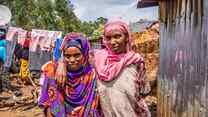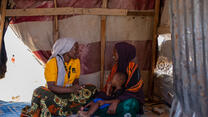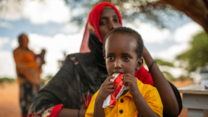The Wasting Advocacy Coalition advocates to:
- Close the treatment coverage gap with the ultimate goal of ensuring access to treatment to all children with GAM, noting the necessity for prioritization of the most severe cases.
- Scale up detection and prevention activities to mitigate exposure to wasting and deterioration from moderate to severe cases.
- Promote the inclusion of innovative, evidence-based approaches to address wasting in national nutrition policies and encourage the global treatment and prevention infrastructure to enable flexibility and responsiveness to national plans.
- Increase overall, long-term and multi-annual global and domestic resource mobilization for wasting prevention and treatment. Promote effective, efficient, and scaled up co-financing to address the direct and underlying causes of child wasting, with a significant portion of global resources dedicated to implementing nationally-led plans.
- Strengthen accountability mechanisms, including via clear and transparent tools to track progress on financing, operations, and logistics of wasting treatment and prevention.
- Foster multi-sectoral action to build resilience in primary health systems, through strengthened overall health systems, investments in healthcare infrastructure, improved supply chains, sustainable food systems, and robust social protection floors.
- Members of the coalition engage in: joint collaboration in multilateral forums and processes; information sharing; co-production of advocacy materials, policy recommendations, social media campaigns, and coalition statements; discussions with key stakeholders and decision-makers; and briefings from/to UN agencies and governments. The Coalition also works to grow consensus and direction among wasting advocacy partners across the sector.
The Coalition is hosted by the International Rescue Committee.
The Coalition’s members are working jointly to progress the objectives in the TOR, but specific advocacy messages and products do not necessarily represent the views of every coalition member and are signed on in a case by case basis.
Meetings are regularly attended by colleagues from implementing INGOs, UN agencies, policy-focused non-profits, philanthropies, and other actors. Most meetings are open to all actors. Periodic meetings are held by the CSO-subgroup for occasional strategic decision making; however, these decisions and processes will be open for input by all actors engaged in the coalition.



